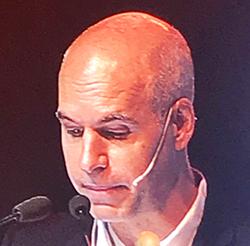What do the UN Sustainable Development Goals mean to UK cities?
Nick Taylor Buck and Kristina Diprose from Mistra Urban Futures and the University of Sheffield’s Urban Institute reflect on key learning so far from a cross-national project exploring how cities are engaging with the UN Sustainable Development Goals.
What are the Sustainable Development Goals?
The Sustainable Development Goals (SDGs) form part of the United Nations' Agenda 2030 for Sustainable Development, a global agenda for sustainability directed equally at the Global North and South. The SDGs have an overarching focus on ending poverty, protecting the planet and ensuring prosperity for all. There are 17 Goals in total, with various associated targets and indicators to assist UN member states in reporting on progress over the period 2016-30. Implementation of the SDGs officially began on 1st January 2016.
Why should cities care about the SDGs?
The vital role of cities in achieving sustainable development is recognised in SDG 11, which focuses on Sustainable Cities and Communities. Over half of the world’s population – including 80% of people in the UK - live in urban areas, meaning that progress towards all 17 Goals relies to a great extent on buy-in and leadership at the urban scale. As Paul Toyne from the London Sustainable Development Commission argues:
Cities manage civic functions on a scale that makes them uniquely well placed to further the SDGs. The dynamics between the various Global Goals are visible at a city level. The levers to address them are frequently within the remit of coordinated city authorities.
Working with the SDGs can also provide added value for local authorities through: improving coordination between departments and directorates in terms of both planning and data; encouraging long-term thinking and planning towards a more sustainable society, economy and environment; and positioning cities in a global context whilst providing a platform to talk to citizens about issues that matter locally.
A global comparison of urban SDG implementation
Within the Realising Just Cities international network we have been working across Buenos Aires (Argentina), Cape Town (South Africa), Gothenburg and Malmö (Sweden), Kisumu (Kenya), Sheffield and Greater Manchester (UK) and Shimla (India), to look at how the SDGs are being implemented in a range of governance and cultural contexts. The project is ongoing and is due to compete at the end of 2019.
Across this network, we are exploring the extent to which the SDGs are embedded in national and local policy and informing sustainable urban development. We have learnt that there is no ‘one size fits all’ approach to SDG localisation, and have found evidence of a range of initiatives including: city and regional level SDG pilots; local implementation guidance issued by national governments; local government association campaigns; national and local stakeholder workshops; SDG policy units and working groups; and national strategies for sustainable urban development. Further information is contained in a series of city briefs available online.
SDG implementation in the UK
In the UK we have reviewed national policy documentation and interviewed key local stakeholders in participating cities, comparing our findings with others in our network. This work has highlighted an underexploited opportunity to embed the SDGs in UK urban policy and planning.
With the exception of a handful of urban SDG initiatives driven by local stakeholders (for example in London, Bristol and Liverpool, and our ongoing work with Sheffield and Greater Manchester city authorities), there appears to be little on-the-ground activity in UK cities around this agenda. There is no clear rationale for city-regions to engage, and limited discussion of the potential of the new devolution context in the UK to promote the SDGs.
In part this could be due to the fact that much of the work to define the SDGs has been undertaken in isolation from the daily pressures and realities of urban local authorities. It could also be because the potential benefits of using the SDG framework (as set out above) are not being communicated effectively.
The most likely cause however is the absence of clear national guidance or priority-setting, as highlighted by the UK Stakeholders for Sustainable Development network in their recent report Measuring Up. Our analysis has revealed that high-level political commitment and support for the SDGs is a key feature in countries that are particularly progressive in delivering on them.
Supporting cities to achieve the SDGs
Lessons from our international partners suggest a number of ways in which the UK Government and other key stakeholders could support SDG implementation at city level. This might include, for example, awareness-raising campaigns, local pilots, knowledge-exchange activities, funds for embedded implementation officers, and working with local authorities to coproduce a supportive set of national guidelines, frameworks and voluntary local indicators. Any such initiatives should consider how local authorities can be resourced and supported, within the context of wider city and devolution deals, to develop locally appropriate mechanisms to achieve the SDGs.
Addressing the SDGs requires coordinated and coproduced approaches. Our work suggests that universities can play an important role in generating debate and action around the SDGs in partnership with local authorities and other stakeholders. It also highlights the need to work across both horizontal and vertical institutional boundaries, particularly to identify, access and analyse data held in different places to generate strategic urban intelligence.
Finally, rather than simply being used as a new set of reporting targets, the SDGs present an opportunity for long-term transformative thinking and coordinated action focussed on the creation more sustainable and just cities.
This blog was initially published on the Realising Just Cities website of the University of Sheffield.
Text by Kristina Diprose and Nick Taylor-Buck
Photo (Jessop West building at the University of Sheffield) by Rob Pumphrey on Unsplash








